Welcome to Queerness In Comics, a bi-weekly column by Avery Kaplan, which will explore queer representation in comics. This week, Avery is exploring Jughead, specifically issues published between 2015 and 2017.
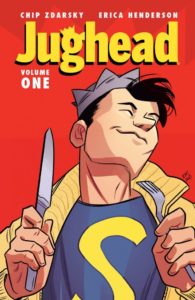
Artist: Erica Henderson (1-6), Derek Charm (7-8)
Color Artist: Andre Szymanowicz (5-6)
Publisher: Archie Comics
After the reboot of Archie in July 2015 gained traction for Archie Comics, it was only a matter of time before other classic series were launched again, as well. Enter Jughead, Archie’s best friend and perpetual non-participant in Archie’s allosexual antics. In October 2015, Jughead’s eponymous comic was relaunched. While the series ran for 11 issues, this column focuses on the first 8, which were written by Chip Zdarsky and featured art by Erica Henderson through issue 6, Derek Charm on issues 6 through 8, and colors by Andre Symanowicz in issues 5 and 6.
Explicit Statement
When Jughead was relaunched, it received attention for its decision to confirm that Jughead was asexual. The explicit statement comes in issue 4, when Kevin Keller remarks that Jughead doesn’t understand the trials and tribulations of the limited dating pool available to him as a gay student at Riverdale High. Jughead confirms the statement by telling Kevin that the fact that he isn’t “hobbled by these hormonal impulses” like the rest of his classmates simply affords him clarity of vision, since he isn’t constantly distracted by the prospect of sex.
With the confirmation of Jughead’s sexuality out of the way, however, there isn’t much further discussion on the matter in the first six issues – although the ongoing story arc, in which Jughead finds himself suspicious of the new school administration even while everyone surrounding him assures him that everything’s fine, is sure to resonate with queer readers. In large part, this is because officially confirming Jughead as asexual is hardly a departure for the character.
Working with Canon
In Twelve Cent Archie by Bart Beaty, a 2015 critical work that analyzes the conventions that form the conventions of an Archie story, Jughead is explicitly acknowledged to be asexual. The text even goes so far as to distinguish and reject the reading that Jughead will eventually outgrow his disinterest in sex, noting that asexuality is simply his “sexual subject position.”
Elsewhere, when noting that Jughead’s two defining characteristics are his love for food and his disinterest in romance, Twelve Cent Archie references a story from Jughead 119 (April 1965) in which a machine built to identify Jughead’s perfect romantic partner inevitably self-destructs due to the impossible nature of its task. While the sensibilities of these early Archie comics aren’t always without their own set of problems – in that story, for instance, the computer was constructed by a coalition calling themselves the United Girls Against Jughead – the personal disinterest in either romance or sex displayed by Jughead has been an intrinsic element of the character for a very long time. While the 2015 Jughead series was the first time that Jughead was paired with the explicit language, the underlying meaning was already present in the fabric of the character.
The Inevitability of Archie
Twelve Cent Archie also discusses the plot mechanisms that inform nearly every Archie story. Two axioms are identified as essential: that the characters must act in accordance with their defining characteristics, and that the action flowing from those characteristics should occur as soon as possible – ideally, before the page is turned.
For Archie, this means that he cannot avoid abiding by his defining characteristics: first, he is a fool for love, invariably giving in to his romantic impulses; and second, that he will inevitably find a way to mess things up. In Jughead #4, Jughead even goes so far as to rely on this inevitability of Archie’s character, pushing Archie to volunteer to assist in repairs on the school’s bleachers because he knows Archie will ultimately cause the project to end in disaster.
Archie and Jughead
With one character tied to romance and sex and the other indifferent to both, it is inevitable that the two philosophies will eventually come into conflict – and in issues 7 and 8 of Jughead, the friction between Archie and Jughead’s respective views on romance come to a head. When the story opens, the best friends haven’t been spending as much time together as they had in the past, and the tension created by their drifting apart is starting to take its toll.
When the pair becomes lost in the woods, the source of their division becomes apparent: Jughead resents Archie for abandoning their friendship whenever the opportunity for romance presents itself, while Archie can’t comprehend how Jughead is able to avoid being blindly dragged around by hormonal impulse. It’s a dramatization of one of the fundamental character dynamic that defines the relationship between Archie and Jughead, and it’s presented from the perspective of the queer character: Jughead, the aromantic asexual protagonist.
Jughead’s “aloof” perspective, which Archie derisively refers to as “Jughead Mountain” during their argument in issue 7, is a function of his ability to avoid the romantic entanglements that are inevitable for Archie. In the stories that involve the Riverdale gang, which are frequently driven by romance, this aspect of Jughead’s personality is a key part of what defines his perspective. While Archie is stumbling through his latest romantic escapade, Jughead is able to comment from outside the splash zone.
Other Interpretations
While Jughead was confirmed to be asexual in the 2015 series, and interpretations of the “classic” character like the one in Twelve Cent Archie considered his asexuality to be self-evident, other incarnations of the character have erased this aspect of his personality. One of the most notable examples, the on-screen version of the character on Riverdale, is even involved in one of the show’s longest-running romantic relationships.
It is true that different incarnations of the Riverdale gang tend to have different character “variables,” and the versions of Archie and his friends found on Riverdale have some significant departures from their classic comic counterparts. However, the benefit of aromantic asexual representation – particularly in the context of the romance-driven stories traditionally told by the Archie characters – cannot be understated.


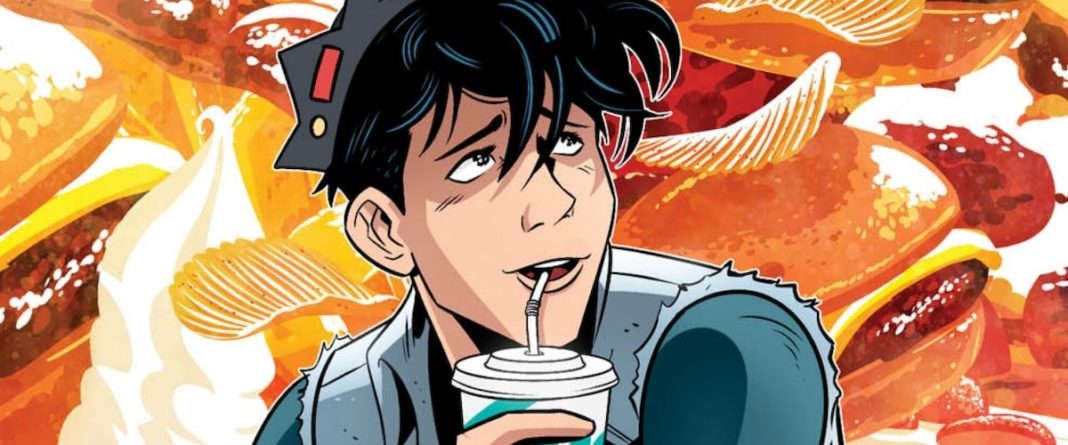
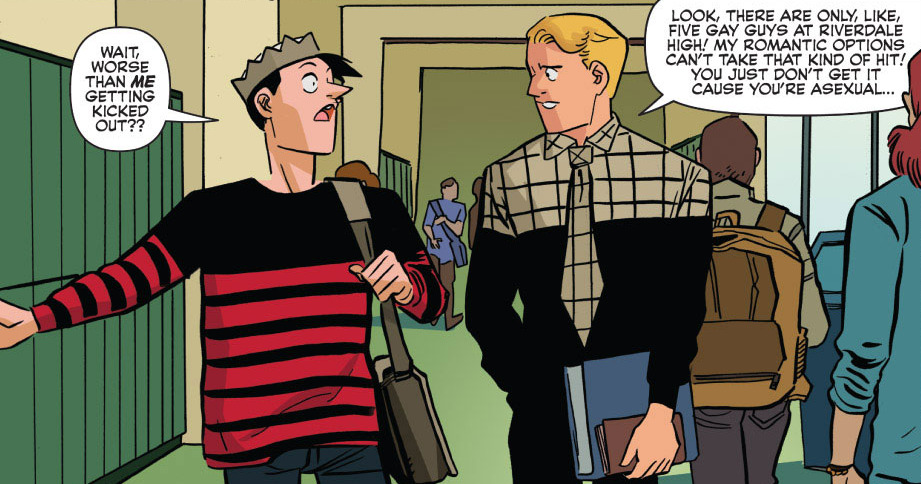
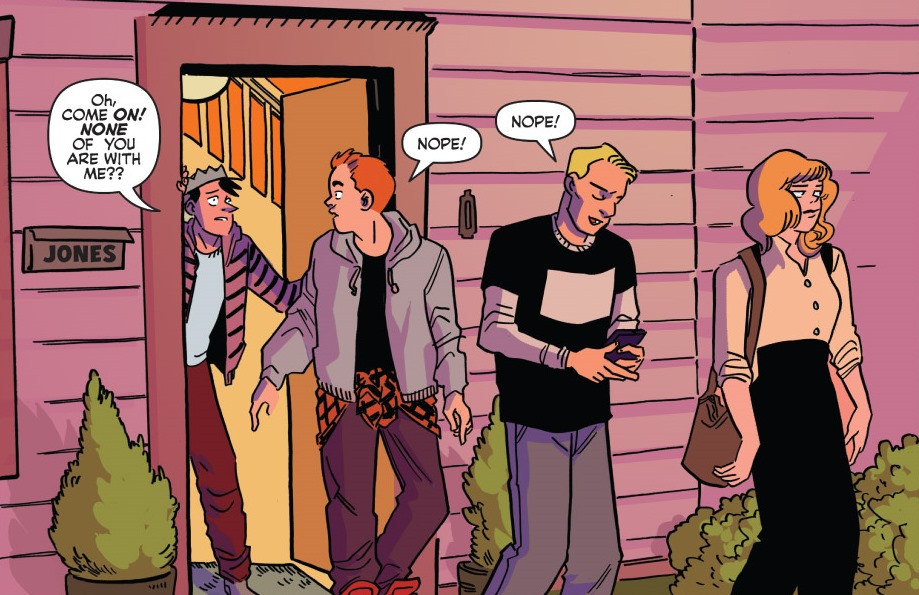
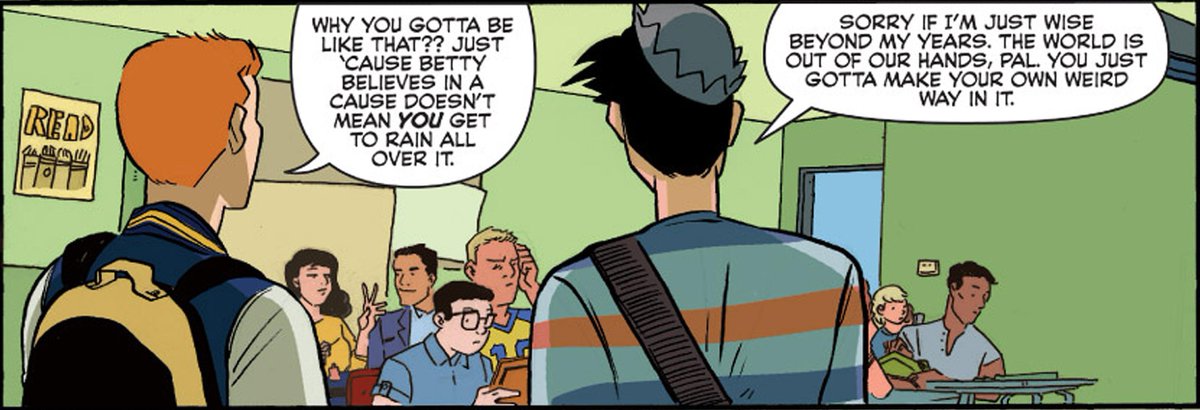
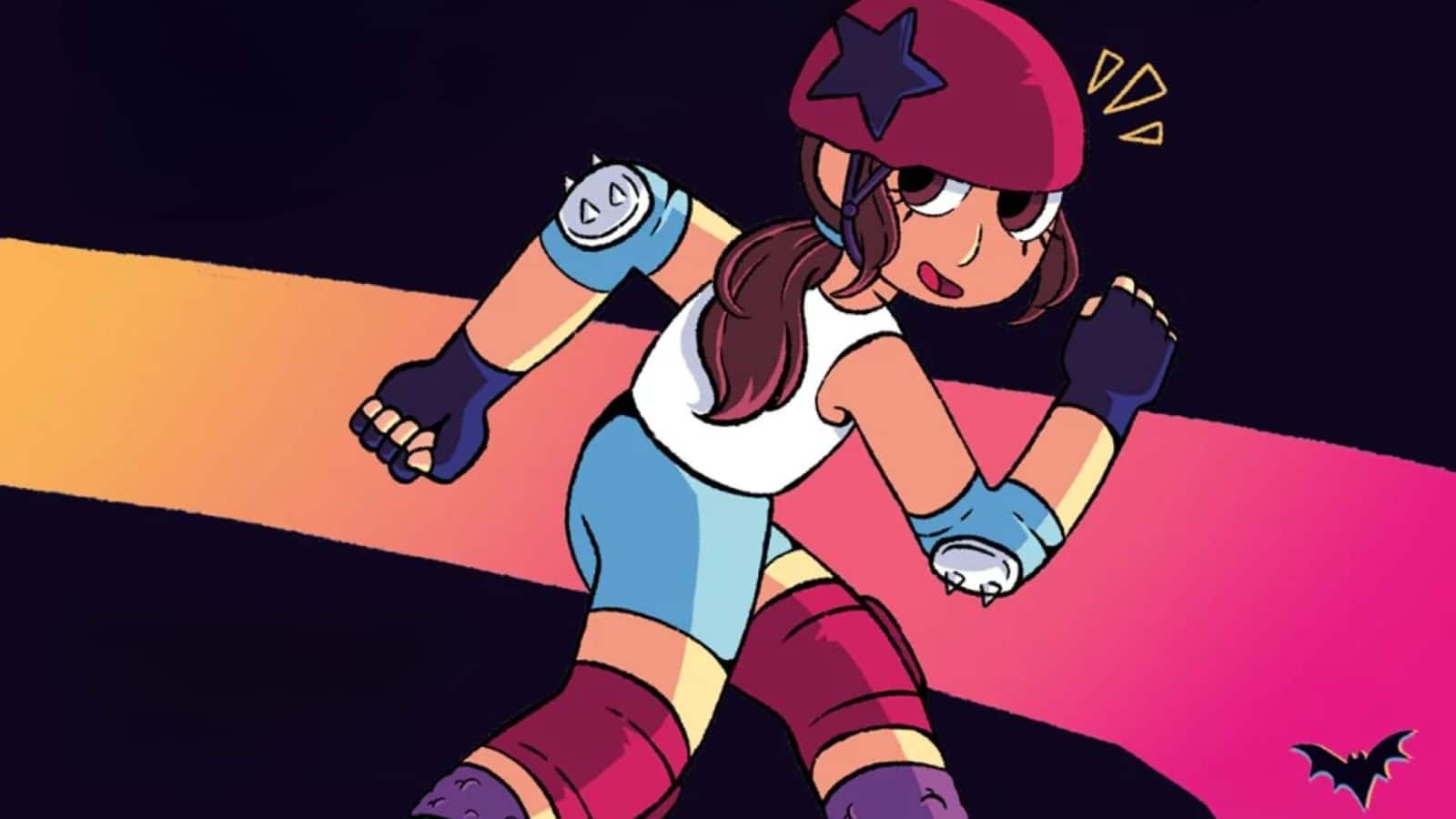
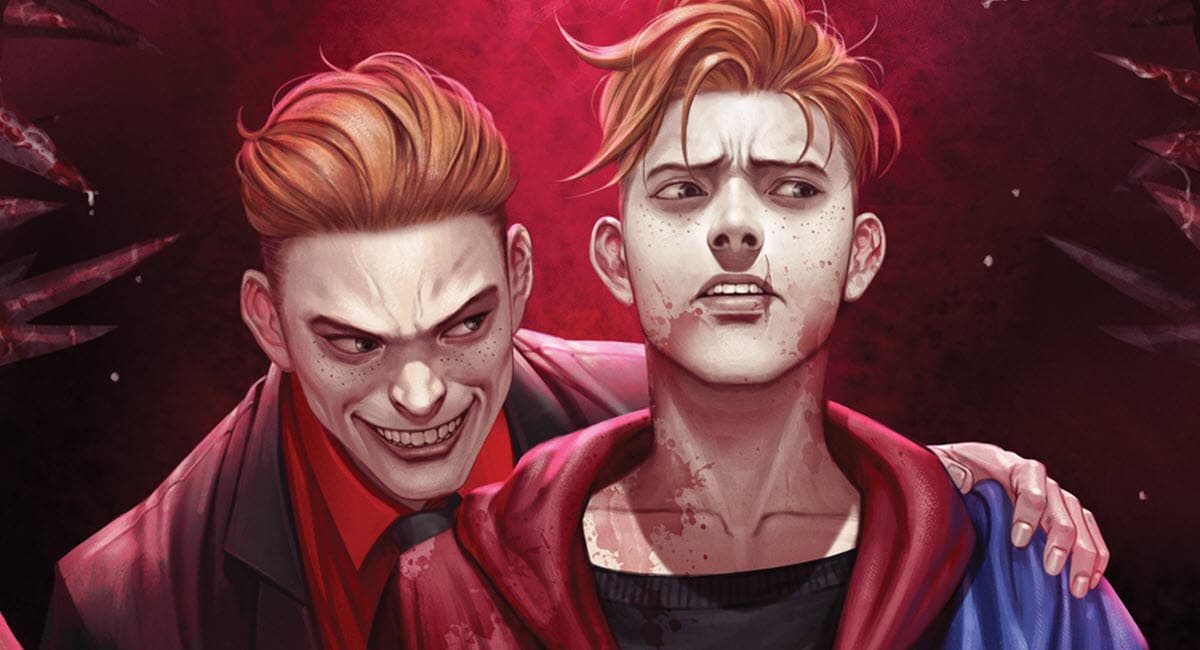
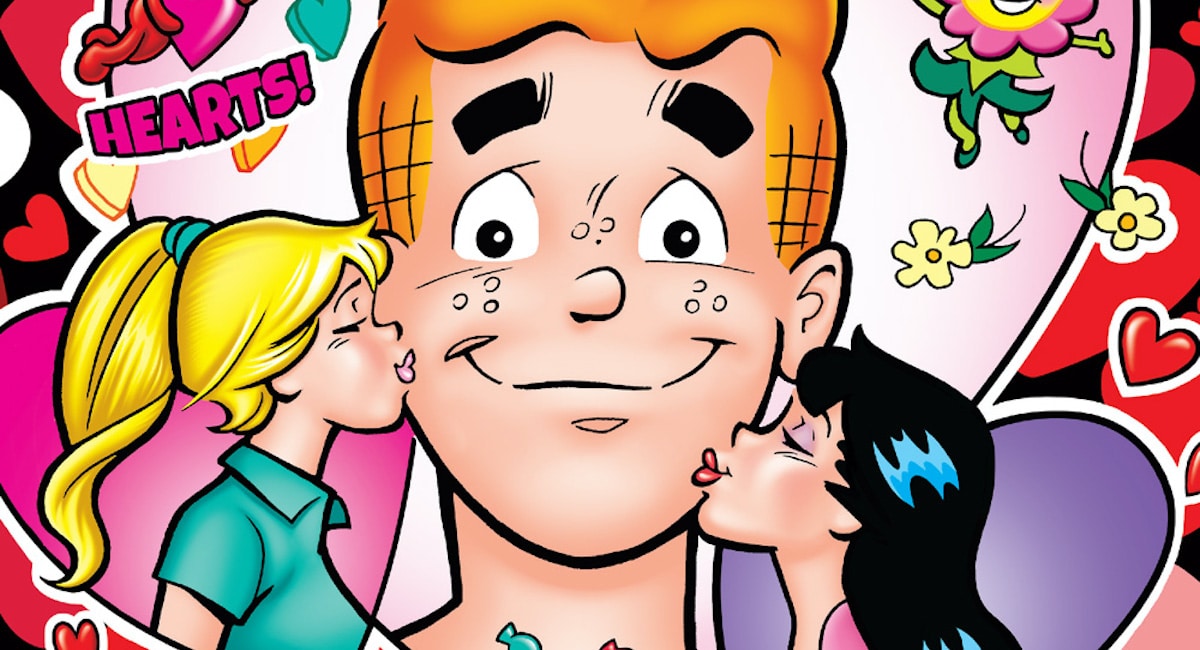


Comments are closed.